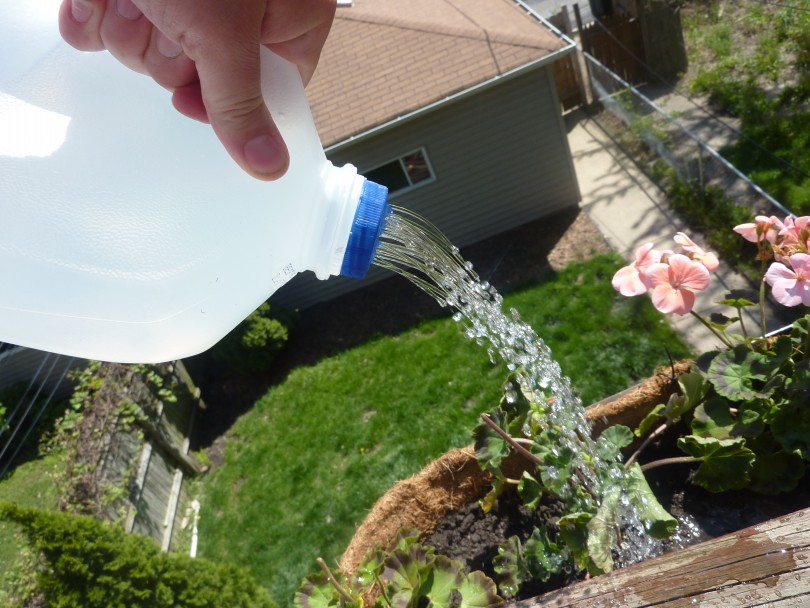Is it really possible to go a whole week without producing any waste? Or what about a whole year?
Lauren Singer from New York City has taken it even further than this, managing to fit all the landfill waste she produced within two years in one jam jar, and has documented her journey on her blog: www.trashisfortossers.com.
But don’t panic, I’m not suggesting that you replace your bin with one small jam jar just yet, but her story really does provide food for thought. So, as today marks the beginning of the eighth year of Zero Waste Week, I’m reflecting back on how I’ve been trying to send less to landfill, and how we can all get creative to incorporate this year’s theme: reuse.
Something I’m particularly interested in is our culture’s excessive use of plastic. In most chain supermarkets it’s almost impossible to buy fruit and veg that isn’t pre-packaged in plastic, and I’ve noticed that even when there are loose alternatives, price incentives encourage the consumer to choose plastic. For example, in one supermarket you can buy one loose pepper for 80p, or three wrapped in plastic for £1.
Instead of purchasing these items and giving in to the plastic madness, I’ve been shopping at markets and bringing my own canvas bag that I can reuse again and again to shop waste free. The Brighton Open Market is great for waste free shopping, and they even have a refillable washing powder station. I also purchased a stainless steel water bottle, with the added bonus of not having to worry about ingesting harmful chemicals such as BPA that plastic bottles leach into the water.
In order to reduce wastage, we need to change our mind-set to truly value materials and products, and get creative with how we can reuse and enjoy the things we already own. How about washing up your used jam and pasta sauce jars to use as cups, penholders, or even storage for homemade beauty products? Since discovering that most shop-bought beauty items such as exfoliators contain thousands of plastic microbeads that wash down the drain and add to the plastic soup within the ocean, I’ve been making my own out of coconut oil and oatmeal.
And you would be surprised at the things you can do with an old milk carton. There are some great tips to be found on www.zerowasteweek.co.uk, such as poking holes in the lid to create a makeshift watering can, or cutting off the handle and a section of the container to create a gardening scoop. One of my favourite ideas on the website is a bird feeder made from one plastic water bottle and two wooden spoons; simply poke holes through the bottle big enough for the wooden spoons to fit through, creating a ledge for the birds to sit on and an opening for the food to come out, attach string to the bottle cap to hang the feeder from a tree, and wait for the birds to flock. Considering that plastic bottle tops are sometimes mistaken for food and have been found in many albatrosses’ stomachs, this is a wonderful way to feed birds by reusing plastic in a positive way!
Even if you just make one small change during Zero Waste Week, you will be making a difference. Thinking about how something could be reused before throwing it in the bin could result in something new for your home, and provide a fun afternoon creating something you’d never thought of making yourself. And who knows, maybe you too could end up swapping your bin for a jam jar.
—
Share on Twitter /
Share on Facebook
Posted on September 7, 2015
Categories: Education for Sustainability
